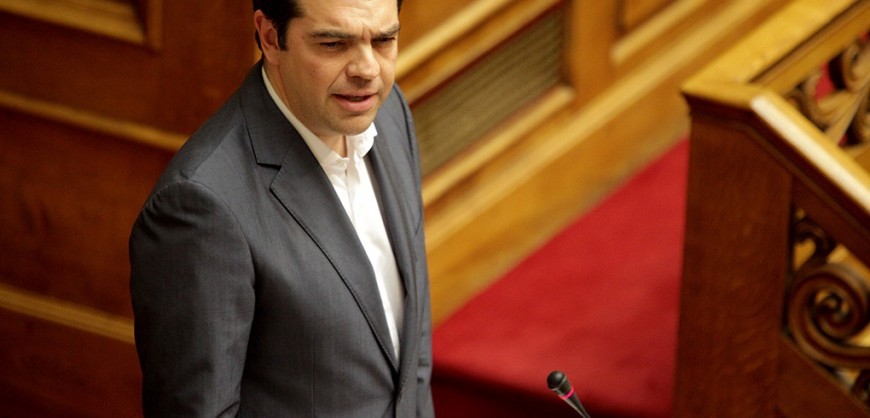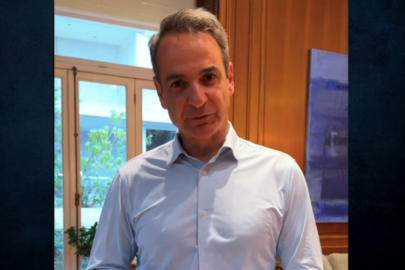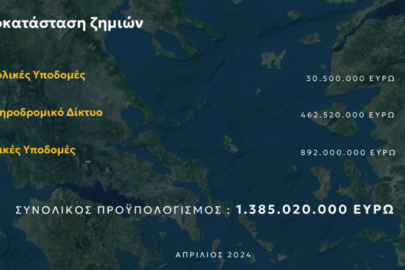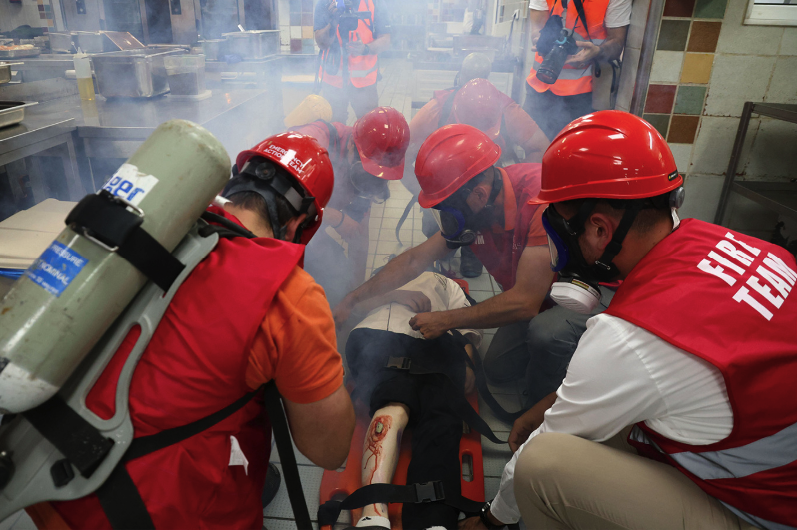Education was an area where all sides were obliged to strive for the greatest possible agreement, despite having widely opposing views, Prime Minister Alexis Tsipras noted on Wednesday, in closing remarks that ended an off-the-agenda debate on education in Parliament. Earlier, the prime minister had lashed out over corruption and intertwined interests, requesting an off-the-agenda debate on corruption in Parliament.
According to Tsipras, the arguments presented during the debate, on both education and economic issues, represented two different worlds: “On the one hand is the public sector and its defence and on the other hand is the world of the markets.”
“Despite the fact that views are presented with a great distance between them…nonetheless, education issues demand what I would call exhaustive dialogue and efforts at synthesis. There are issues where this cannot be achieved but it is still worth the trouble,” he added.
Criticising main opposition New Democracy’s leader Kyriakos Mitsotakis, Tsipras said that ND’s leader had presented his own positions clearly but distorted SYRIZA’s own positions in many ways, while he also criticised ND for walking out of the dialogue before the Educational Affairs Committee and refusing to sign its conclusions as other opposition parties had done.
The desire of Greek families to give their children a good education and the highly skilled people both within and outside Greece were possibly the country’s “most important capital” in efforts for recovery, he noted. “It is our major competitive advantage: knowledge has innate value, it is an important thing for someone to be educated, regardless of whether or not they can be absorbed by the labour market. If we let the market decide everything, we would lose this important comparative advantage and the value of knowledge,” Tsipras said.
The prime minister also noted that all sides, while disagreeing on many things, agreed on the need to change the curriculum for religious studies classes. This would be done through the necessary dialogue and the opinions of the Church will be heard and taken into account, he added.
The prime minister had also attacked intertwined interests and the “old political system,” as well as the stance of certain media toward the TV licence tender. He noted that the government was striving to exit the crisis with society upright, while putting an end to corruption and accumulated problems, and predicted a swift conclusion of the second review of the Greek programme.
He stated that Greece has for the first time an opportunity to overcome the crisis. The first programme review has been successfully concluded, he said, adding that the green light for the disbursement of the 2.8 billion euro loan sub-tranche will be given.
Tsipras ended an off-the-agenda debate on education
PM said that “education issues demand what I would call exhaustive dialogue and efforts at synthesis”





































